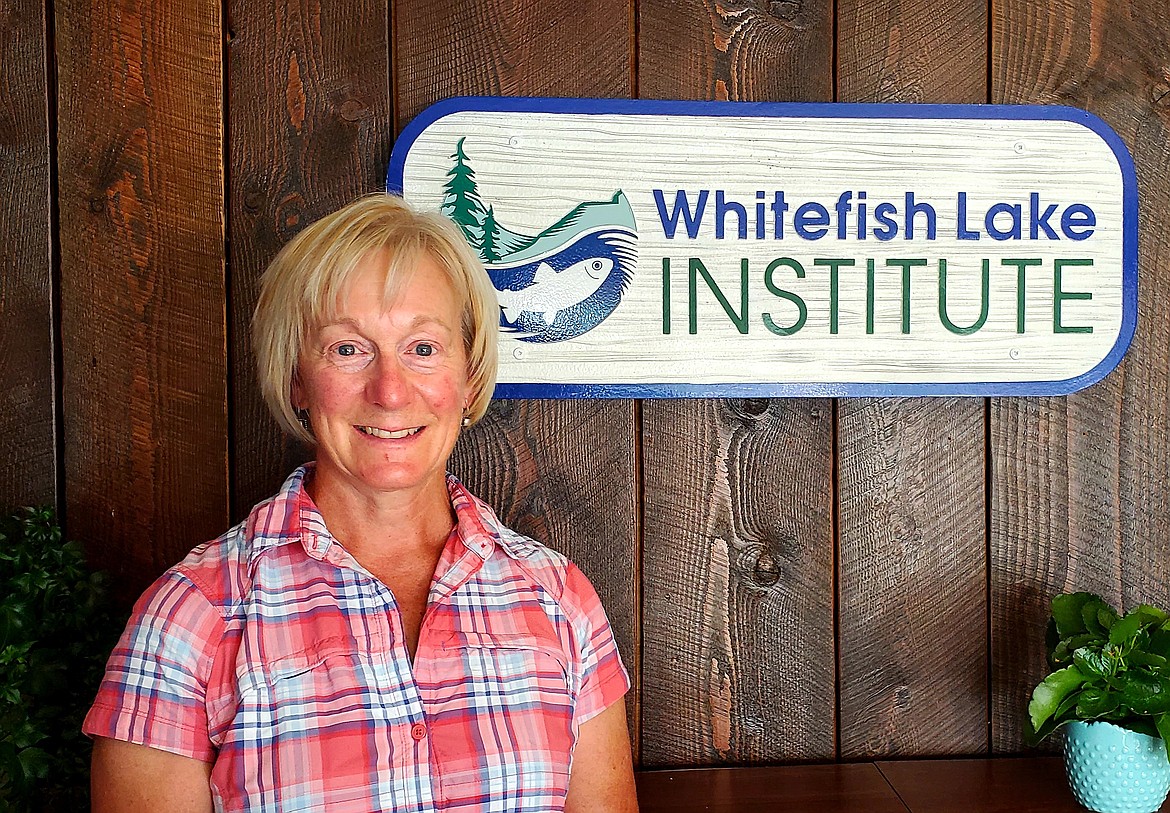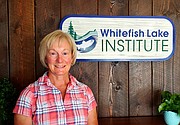Longtime Whitefish Lake conservationist passes baton
The "Flathead Watershed Sourcebook: A Guide to an Extraordinary Place" is about 250 pages of photos, graphics and essays from dozens of contributors exploring the cultural and ecological history of the region. Part textbook, part nature guide, it's filled with useful information for anyone interested in conserving or recreating responsibly on the lands and waterways of Northwest Montana.
It's the kind of heavily researched project an experienced conservation expert might spend years on. Lori Curtis put it together in just two — with backing from a group called the Flathead Community of Resource Educators, or CORE — and she did it while completing coursework for her master's degree in environmental studies in her mid-50s.
"I wanted this to be accessible to high school and above. It feels good to have something that actually communicates some important things to people who normally wouldn't read about them," Curtis said of the book. She recalled a friend telling her, "The most important thing that we need is people who can communicate science, because scientists do such a bad job of it."
The publication of the book marked a turning point in Curtis' professional life. She had studied oceanography at a community college and briefly attended the University of California Santa Barbara in the 1970s before dropping out when her father was diagnosed with cancer.
She spent decades working in other fields, from her father's swimming pool maintenance business when she was in high school, to various entrepreneurial and public relations roles that landed her in the Silicon Valley and in the tiny town of Grand Lake, Colorado.
When she and her husband, Walter, relocated to the Flathead Valley in 2006, she was ready to make a change. Two years later, she enrolled in an online graduate program through the former Green Mountain College.
"I thought, 'This is nuts. I'm still not doing what I want to do and it's never going to happen,'" she recalled. "I had always wanted to work in either forestry or water management."
CURTIS, WHO called herself a "big proponent" of older-adult education, retired this month, at age 66, after a decade with the Whitefish Lake Institute, a small nonprofit founded by Mike Koopal in 2005 to protect the lake and its tributaries.
The organization has largely focused on preventing the introduction of invasive zebra and quagga mussels, which can clog pipes and displace native species, and on monitoring the health of the lake by rigorously collecting and testing water samples.
With the official title of science and education coordinator, Curtis wore many hats at the institute, conducting research and education programs; applying for grants and managing the organization's finances; developing an interpretive trail through the 28-acre Averill's Viking Creek Wetland Preserve; raising money through an annual wine auction and an event dubbed the Montana Lakes Conference; and helping develop materials, including a 60-page book titled "Voices of Our Lake," that encourage people to get involved in water conservation.
Curtis also investigated the problem of septic leachate runoff from lakeshore properties — a problem that has grown into a major focus of the Flathead Basin Commission. Without enforceable local, state or federal requirements, she said, it's difficult to encourage property owners to properly maintain their aging septic tanks.
"It's private infrastructure, but it affects public resources," she said.
CURTIS MIGHT return to the Whitefish Lake Institute as a board member sometime in the future. But for now, she's content to continue teaching online courses through Prescott College in Arizona — and take in views of the watershed she's worked to protect.
She has passed on the institute's finance and grant responsibilities to Carol Treadwell, who holds a doctorate in earth and planetary sciences from the University of New Mexico and previously served as executive director of the Bob Marshall Wilderness Foundation and the Ausable River Association in New York.
Treadwell said Whitefish Lake remains one of the cleanest lakes in the country, but with increases in population, lake use and development, the ecosystem isn't as healthy as it used to be. She looks forward to helping preserve it for future generations.
"We can't do anything to get the lake back to 'excellent' water quality, but we can prevent water quality in the lake from declining further," she said. "That's why WLI's monthly lake monitoring work is so important for keeping a finger on the pulse of the lake. WLI provides a great service to the citizens of Whitefish as well as the aquatic inhabitants of the lake."
Assistant editor Chad Sokol may be reached at 406-758-4439 or csokol@dailyinterlake.com.




